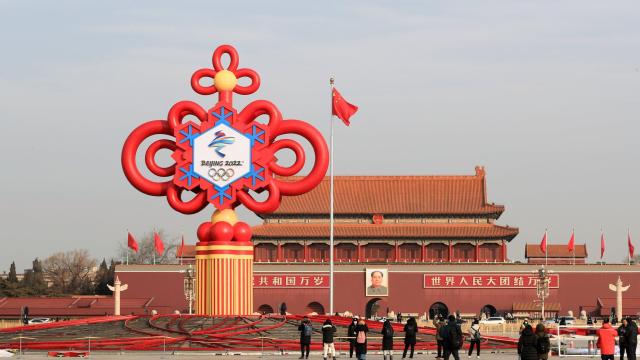American Olympic athletes heading to Beijing for this year’s 2022 Winter Olympics are being advised to pack a disposable burner phone and get familiar with virtual private networks to avoid potential Chinese government surveillance.
That guidance, sent out by the United States Olympic & Paralympic Committee in a September advisory document and subsequent December bulletin, reportedly warns athletes that all of their communications, transactions, and online activity could be subject to state monitoring while competing in China. The documents, viewed by The Wall Street Journal, and USA Today, also reportedly warned athletes their devices could be targeted with malicious malware or spyware.
“Despite any and all safeguards that are put in place to protect the systems and data that are brought to China, it should be assumed that all data and communications in China can be monitored, compromised or blocked,” the bulletin said according to USA Today. If athletes do decide to take their own devices, the advisory recommends they at least wipe the devices of any personal data beforehand
The U.S. isn’t alone in this. In recent days the Olympic associations for Australia, Britain, and the Netherlands have all issued similar cybersecurity warnings to their athletes, with the latter two claiming they would offer competitors temporary burner devices.
“We’ve given athletes and staff practical advice so that they can make their own choice as to whether they take their personal devices to the Games, or not,” a British Olympic Association spokesperson told The Guardian. “Where they do not want to take their own equipment, we have provisioned temporary devices for them to use.”
Gizmodo reached out to both TeamUSA and the International Olympic Committee for comment regarding the growing surveillance concerns but has yet to hear back.
News of the security warnings also comes just about one week after The White House announced a diplomatic boycott of the upcoming games. Canada, the UK, and Australia quickly followed suit and announced their own similar diplomatic boycotts days later. China’s state-aligned Global Times newspaper recently published an op-ed in response to the boycotts and the growing international concerns over surveillance where they downplayed the criticism as, “based on fake news, ignorance, and the West’s own deeds.”
Concerns around surveillance at the 2022 winter games aren’t entirely new, but this marks the most significant attempt yet by the U.S to offer up cybersecurity warnings. The issue isn’t confined to only athletes either. Late last year, the group Reporters Without Borders offered a similar warning to journalists looking to cover the event. In that case, RWB advised journalists not to download Chinese applications that could potentially allow for government monitoring.
Espionage and state spying in a general sense has a long history at the Olympic Games. Spooks and spies representing security states have made regular appearances, and in some cases, have even worked with athletes. Dave Sime for example, a U.S. sprinter who won silver at the 1960 Olympic Games in Rome, was famously in cahoots with the CIA as part of a larger operation to allegedly convince Ukrainian athletes to defect to the west, according to The Guardian. More recently in 2016, an NBC News analysis of classified documents claimed U.S intelligence agencies had assigned more than 1,000 spies to the Olympics Games in Rio de Janeiro in an effort to bolster security.
It’s also not uncommon for host nations to ratchet up security and surveillance prior to and during the event. Critics and civil liberty advocates though have warned these efforts can often go too far. That may have been the case during the 2014 Sochi Winter games, for example, when the Russian government created a powerful new surveillance apparatus capable of allegedly intercepting metadata, full phone conversations, and internet activity, according to The Verge. Government officials reportedly referred to this Olympic era panopticon as a “ring of steel.”
